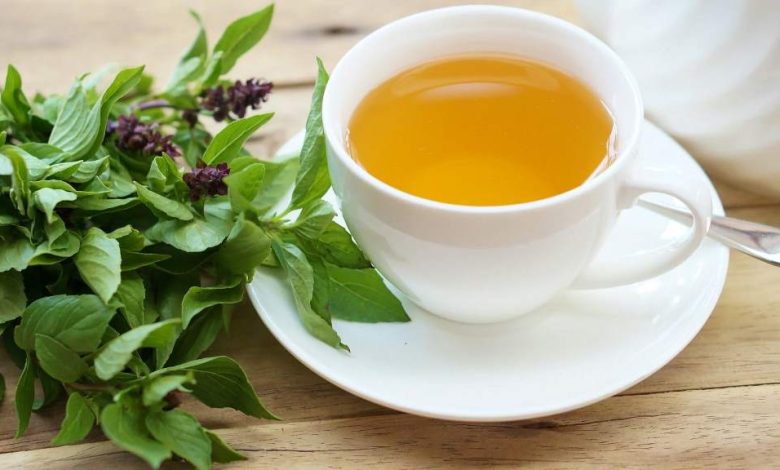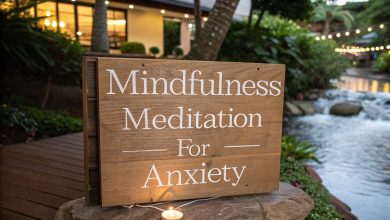Holy Basil (Tulsi) Recipe for Generalized Anxiety: A Natural Way to Find Calm

Feeling overwhelmed by worry? You’re not alone. Generalized anxiety affects millions, with about 6.8 million adults in the U.S. experiencing it annually, according to the National Institute of Mental Health. Many seek natural remedies to ease their minds, and one powerful option is holy basil, also known as Tulsi or Ocimum sanctum. This sacred herb, revered in Ayurvedic medicine, offers adaptogenic properties that help the body manage stress. In this article, you’ll find a simple, effective holy basil recipe for generalized anxiety, along with tips to incorporate this spiritual plant into your wellness routine.
What Is Holy Basil (Tulsi)?
Holy basil, or Ocimum tenuiflorum, is a fragrant herb native to Southeast Asia. Often called the “queen of herbs” in traditional Hindu medicine, it holds a special place in Indian medicine for its healing powers. Tulsi is packed with bioactive compounds like rosmarinic acid, which support the immune system, balance blood sugar, and reduce stress hormones. Its adaptogenic properties make it a go-to for calming nervous energy and supporting the endocrine system.
Research shows Tulsi’s potential. A 2017 study in the Journal of Ayurveda and Integrative Medicine found that holy basil lowered cortisol levels, a key stress hormone, in participants using the Perceived Stress Scale. This makes it a promising tool for managing generalized anxiety.
How Holy Basil Helps with Generalized Anxiety
Generalized anxiety disorder (GAD) involves persistent worry that disrupts daily life. Holy basil works by calming the hypothalamic-pituitary-adrenal axis, the body’s stress response system. It also supports the SAM system, which regulates mood and energy. By reducing salivary cortisol and hair cortisol levels, Tulsi promotes a meditative state, helping you feel grounded.
The herb’s anxiolytic properties shine in herbal medicine. It boosts cognitive function, improves sleep quality (as measured by tools like the Athens Insomnia Scale), and balances the nervous system. Unlike synthetic drugs, Tulsi offers a gentle, natural approach without harsh side effects.
Holy Basil (Tulsi) Recipe for Generalized Anxiety

Ready to try Tulsi for yourself? This simple holy basil tea recipe combines the herb’s calming effects with other stress-adapting botanicals. It’s easy to make and perfect for daily use.
Ingredients
- 1 tablespoon dried holy basil leaves (or Tulsi powder)
- 1 teaspoon chamomile flowers (for added calm)
- 1 teaspoon infused honey (optional, for sweetness)
- 2 cups filtered water
- 1 pinch cinnamon (for warmth and blood sugar balance)
Instructions
- Boil 2 cups of filtered water in a small pot.
- Add holy basil leaves and chamomile flowers.
- Reduce heat and simmer for 5 minutes.
- Remove from heat and let steep for 10 minutes.
- Strain the mixture into a cup.
- Stir in infused honey and a pinch of cinnamon.
- Sip slowly, focusing on the warmth and aroma.
Tips for Best Results
- Use high-quality Tulsi from trusted retail supplement stores or traditional pharmacies.
- Check product packaging for United States Pharmacopeia (USP) certification to ensure purity.
- Drink 1–2 cups daily, ideally in the morning or evening, to support your adrenal glands.
This recipe is a staple in herbal remedies. The chamomile enhances Tulsi’s calming effects, while cinnamon supports blood sugar and cholesterol levels, which can influence mood.
Other Ways to Use Holy Basil for Anxiety
Tulsi’s versatility makes it easy to incorporate into your routine. Here are some ideas:
- Tulsi Tea Variations: Add lemon balm or peppermint for extra flavor and immune balance.
- Herbal Tinctures: Use Tulsi tinctures for a concentrated dose. Add 5–10 drops to water or juice.
- Tulsi Powder Smoothies: Blend 1 teaspoon of Tulsi powder into a morning smoothie with berries and spinach.
- Aromatherapy: Use essential oil of holy basil in a diffuser to create a calming environment.
Always consult a health care professional before adding new herbal remedies, especially if you have existing health conditions or take medications that affect blood clotting or vitamin K levels.
The Science Behind Tulsi’s Benefits
Holy basil’s benefits go beyond tradition. Studies highlight its pharmacological properties:
- Stress Reduction: A 2014 study in Evidence-Based Complementary and Alternative Medicine showed Tulsi reduced stress markers in participants using the Profile of Mood States.
- Sleep Support: The Restorative Sleep Questionnaire found improved sleep quality in Tulsi users, critical for anxiety management.
- Immune Function: Tulsi’s immunomodulatory properties help maintain immune balance, reducing the physical toll of stress.
- Cognitive Boost: Compounds like rosmarinic acid support cognitive function, helping you think clearly under pressure.
High-Performance Liquid Chromatography tests confirm Tulsi’s bioactive complex, ensuring consistent quality in supplements. Its role in traditional herbal wellness systems makes it a trusted choice worldwide.
Lifestyle Tips to Enhance Tulsi’s Effects
Pairing Tulsi with healthy habits amplifies its benefits. Try these:
- Track Stress: Use tools like sleep diaries or a Fitbit Charge 4 to monitor stress and sleep patterns.
- Meditate Daily: A meditative state enhances Tulsi’s calming effects. Start with 5 minutes of deep breathing.
- Eat Balanced Meals: Support blood sugar and cholesterol levels with whole foods like leafy greens and nuts.
- Seek Personalized Care: Work with a nutritional consultant to tailor Tulsi use to your needs.
These habits, combined with Tulsi, create a holistic approach to managing anxiety.
Potential Side Effects and Precautions
Tulsi is generally safe but requires caution:
- Blood Clotting: Tulsi contains vitamin K, which may affect blood clotting. Consult a doctor if you’re on blood thinners.
- Pregnancy: Avoid high doses during pregnancy due to limited research.
- Allergies: Test for skin conditions or allergic reactions with a small dose first.
Always source Tulsi from reputable suppliers. Lab testing ensures no contaminants, like those from radiation poisoning, affect quality.
Embrace Calm with Holy Basil
Holy basil (Tulsi) is a powerful ally for generalized anxiety. Its adaptogenic properties, backed by science and tradition, help calm the mind, balance stress hormones, and support overall wellness. By trying the simple Tulsi tea recipe and incorporating healthy habits, you can find natural relief from anxiety. Start today by sourcing quality Tulsi and sipping your way to calm. Your mind deserves it.
Read Also:
The Benefits of Cold Water Immersion for Anxiety: A Deep Dive into Chilling Out
Green Smoothie Recipes for Weight Loss: Delicious, Nutrient-Packed Blends to Support Your Goals
FAQs
What is holy basil good for?
Holy basil supports stress relief, immune function, and cognitive health. It helps balance blood sugar and cholesterol levels, making it a versatile herb in Ayurvedic medicine.
How often should I drink Tulsi tea for anxiety?
Drink 1–2 cups daily, ideally in the morning or evening, for consistent benefits. Consult a health care professional for personalized advice.
Can Tulsi replace anxiety medication?
Tulsi is not a replacement for prescribed medication. It can complement treatment, but always consult your doctor before making changes.
Are there side effects of holy basil?
Tulsi may affect blood clotting due to vitamin K. High doses could cause mild stomach upset. Test for allergies and consult a doctor if needed.
Where can I buy quality Tulsi?
Purchase from retail supplement stores or traditional pharmacies with USP certification. Check product packaging for purity and sourcing details.
References
- National Institute of Mental Health: https://www.nimh.nih.gov/health/statistics/generalized-anxiety-disorder
- Journal of Ayurveda and Integrative Medicine: https://www.ncbi.nlm.nih.gov/pmc/articles/PMC5376420/
- Evidence-Based Complementary and Alternative Medicine: https://www.hindawi.com/journals/ecam/2014/761608/




